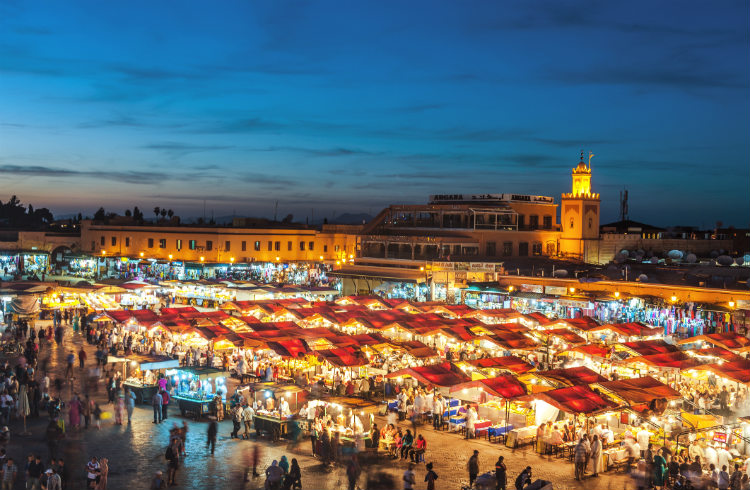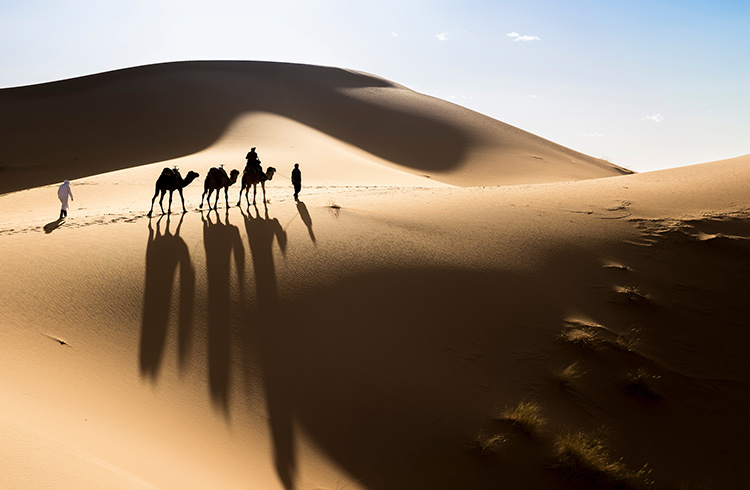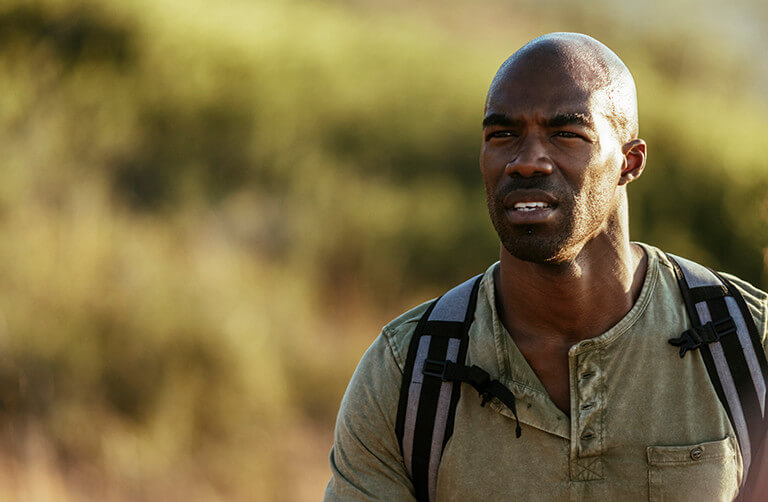5 Things to Know Before Visiting Morocco
Planning a Morocco adventure? Mark Eveleigh shares his expert travel tips, from the best time to visit and how to get around, to culture and etiquette, to the ideal Morocco itinerary.
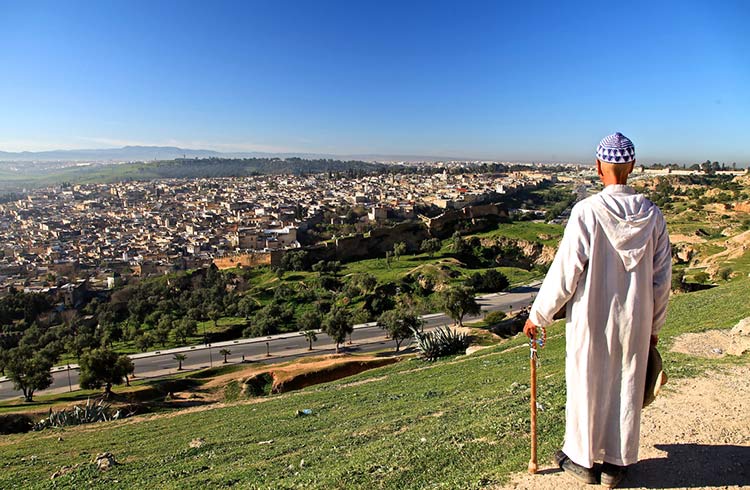 Photo © Ian Neubauer
Photo © Ian Neubauer
During the late 1990s I was a struggling travel writer based in Madrid. My business plan didn’t budget for long-haul trips, so the best I could do in the quest for adventurous new material was to board the overnight bus that would deliver me to Tangier in time for breakfast. It was like having Africa on my doorstep.
I’ve returned on assignments to Morocco’s farthest reaches often since those days. It remains one of the most fascinating, exhilarating, and challenging countries I’ve ever traveled in.
I trekked with Berber mule trains in the Atlas, rode in a Tuareg camel caravan across the Central Sahara and criss-crossed the country in taxis, buses, trains, and cars (once driving a 34-year-old VW Beetle in a convoy bound all the way to Gambia). Despite its relative accessibility Morocco remains one of the most exciting adventure destinations on the planet.
Occasionally it can be stressful but more often travelers are charmed by a code of hospitality that is perhaps a national characteristic of Moroccans from all walks of life and all cultural backgrounds.
Here are five things to bear in mind before traveling in Morocco.
- What is Morocco like?
- Culture and etiquette
- Places to visit in Morocco
- Best time to visit Morocco
- Getting around Morocco
What is Morocco like?
Morocco defies generalizations. There is a world of difference between famously edgy and cosmopolitan Tangier (with its ancient Mediterranean history and mysterious International Zone background) and the sleepy rural towns of the Rif Mountains, or the last nomadic communities of the southern desert. Marrakech ranks highly on any list of the world’s most exciting and vibrant cities. The Djemaa el Fna (the city’s main plaza), the world’s greatest never-ending “festival”, is a spectacle that any traveler should experience at least once.
Fes with its captivating souks and timeless tanneries has a thrill all its own. Then there are enchanting towns like Chefchaouen, with alleyways painted ice blue under the unforgiving African sun, and Essaouira, the windswept city perched on the Atlantic coast. But to travel in Morocco and miss out on the wilderness is to miss the very soul of the country. You can hike among the greenery of the Rif Mountains, join a camel train into the desert from Merzouga or walk with baggage-mules to Kasbah du Toubkal and then continue among the arid peaks of the Atlas.
Morocco is a world unto itself.
Culture and etiquette
While religious freedom has historically been a central part of Moroccan life, it’s important to remember that this country is predominantly Muslim (albeit of a fairly relaxed nature). Exercise discretion with public displays of affection and be aware of appropriate dress. Cover shoulders and legs especially when visiting palaces, kasbahs and (crucially) in the vicinity of mosques. Women should carry a scarf to cover the head at religious sites – and some (specifically blondes) find it an effective way to blend in with crowds.
Morocco has its share of westernised beaches (around Agadir and Essaouira especially) where beach attire is the norm but once away from the beach-front it’s wise/polite to dress more modestly. In ancient medinas and traditional towns, you should enquire about the etiquette surrounding the traditional hammam steam-baths (potentially a highlight of your trip).
Many Moroccans prefer not to have their photo taken. It goes without saying that you should always ask if you want a portrait and respect your subject’s decision. Professional photographers are aware that Morocco ranks among the most difficult places to work since, even in a wide-angle crowd scene, you might often have someone who will object.
Shopping is irresistible part of any trip to Morocco and (aside from a few designer shops) you’ll be expected to haggle almost everywhere. The deal should never degenerate into an argument; maintain a friendly smile and a light-hearted demeanor and always pay up when your price has been accepted. Don’t drive too hard a bargain – a dollar either way might not matter to you but, contrary to popular belief, a struggling trader will sell at a loss if it’s the only way to feed his family that evening.
Alcohol is only available in tourist areas and then usually only in inconspicuous bars. It can be worth asking at your hotel/riad though because, even within the medina of Marrakech, you can find some unexpectedly lovely cocktail bars.
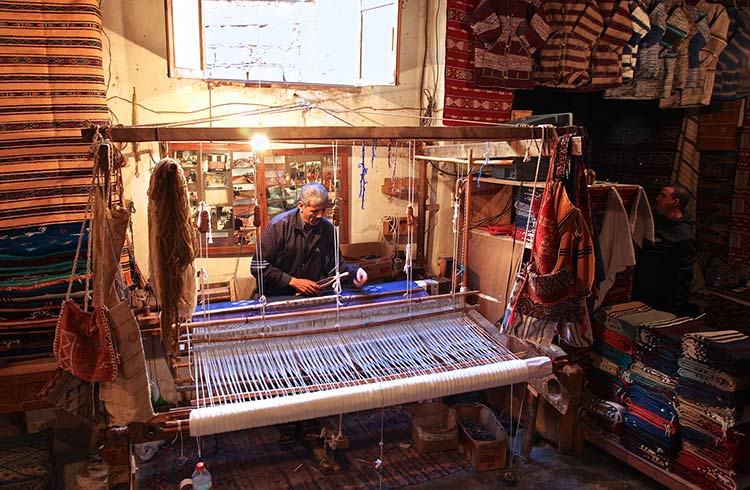
Places to visit in Morocco
Morocco has enough exciting locations to keep you traveling for months but an ideal trip that would give you a wonderful insight into the region’s cultural, historic and natural diversity might go something like this: fly into Casablanca and take a bus to Fes (a three-hour drive). After a couple of days exploring the historic city, hire a driver to take you through the Rif Mountains to Chefchaouen (four hours) and onward to Tangier (two hours). You can grab an extra day on the Mediterranean coast by taking the very comfortable night-train which will plant you in Marrakech in time for breakfast.
From here you can take a taxi to Imlil (1.5 hours) to experience the High Atlas – the roof of Africa – before heading back to Marrakech for the long (10 hour) drive to Merzouga for your appointment with camels, Bedouin tents and the majestic expanses of the Sahara.
Wherever possible (especially in Fes, Tangier and Marrakech) try to stay in riads. These renovated medina townhouses (often more like mansions) capture the soul of the old cities perfectly and, with their interior courtyards or gardens, are invariably a haven of peace from the sensory overload of the souks.
It pays to be brave when it comes to food since Morocco is a gourmet’s paradise and you will often find some of the most unforgettable meals and snacks among the street-food vendors and local eateries.
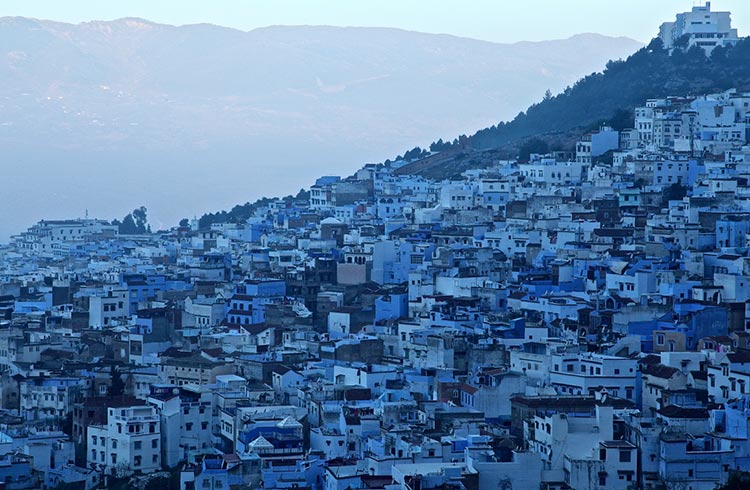
Best time to visit Morocco
There’s no bad time to be in Morocco but autumn (September-November) and spring (March-May) are particularly idyllic. Summers can be sweltering in the desert but an ideal time for hiking in the Rif or Atlas Mountains. Winter, while sometimes so chilly that you’ll struggle to remind yourself that you’re in Africa, is so astoundingly beautiful that some rate it as the best time to visit. Marrakech sees minimal tourists during winter and the city never looks so beautiful as it does when the snowcapped mountains form a backdrop to the glowing amber kasbah walls.
Ramadan (which varies each year but in 2024 lasts from March 10 to April 9) is celebrated in every part of the country. It can be a vibrant time to travel since every evening takes on the feeling of a festival or street party. However, it can be restrictive since Muslims abstain from food and drink (and even smoking) during daylight hours. In the big cities some tourist eateries function as normal but – while the restriction doesn’t officially extend to foreigners – it is considered polite to avoid eating or drinking on the street.
Getting around Morocco
Comfortable local buses, connecting all the major towns and cities, can be a great way to make Moroccan friends. Within cities and towns simply flag down the ubiquitous petit taxis (little taxis) or increasingly common three-wheeled tuk tuks, which have the benefit of being able to thread their way through some of the tightest parts of the medina. Petit taxis are metered but the driver will sometimes ‘forget’ to turn the meter on or will tell you that it doesn’t work … in which case you need to haggle the rate in advance.
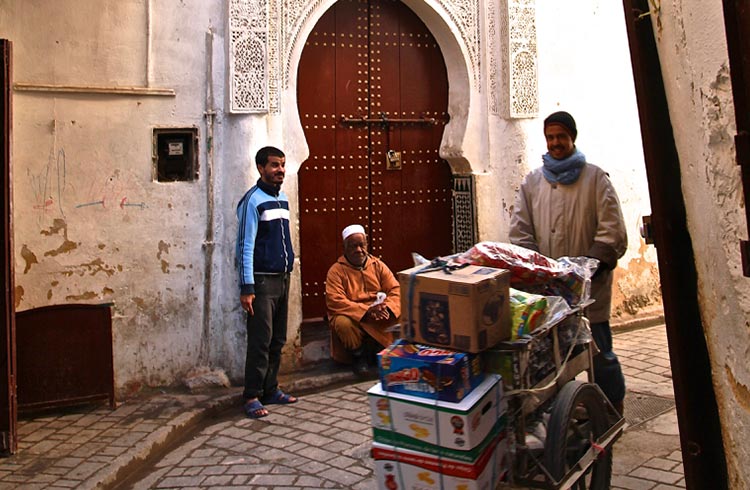
Inter-city taxis are known as grand taxis (most commonly Mercedes Benz and sometimes of quite venerable vintage) and run long distances at competitive costs. Be aware that drivers of both petit and grand taxis expect to retain the right to be able to pick up extra passengers along the way (as long as there’s even a remote possibility of fitting them in). This can be a benefit for solo travelers who enjoy meeting local people but, unless you’re happy to pay for extra seats, you might have to wait around until enough passengers turn up.
If you’re traveling with friends and prefer to retain autonomy so that you can stop for photo opportunities or mealtimes, it’s possible to haggle a price for the entire vehicle. Hotel/riad staff can advise you how to secure a grand taxi for your next destination.
Excellent train services connect the main cities and provide a hassle-free and pleasant way to enjoy the landscape. A high-speed train now connects Casablanca with Tangier (211mi/340km away), in two hours and 10 minutes and from there you can get to Marrakech.
Why rush, though, when you can catch the old Marrakech Express (immortalized in the 1969 song by Crosby, Stills, and Nash) from Tangier for a leisurely and romantic overnight rail-journey which will land you in legendary Marrakech at dawn?
Related articles
Simple and flexible travel insurance
You can buy at home or while traveling, and claim online from anywhere in the world. With 150+ adventure activities covered and 24/7 emergency assistance.
Get a quote